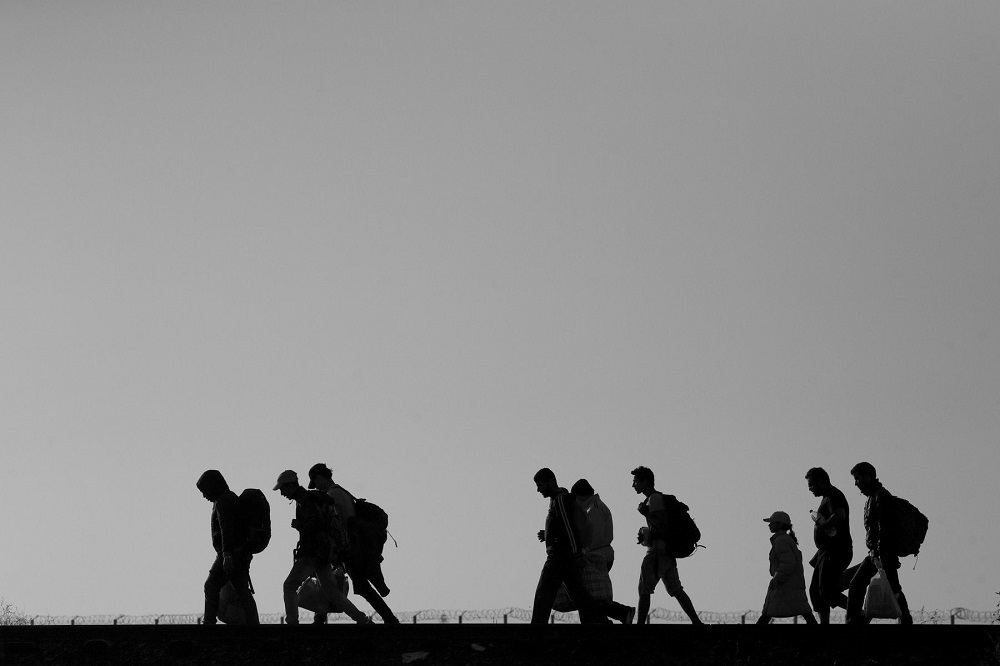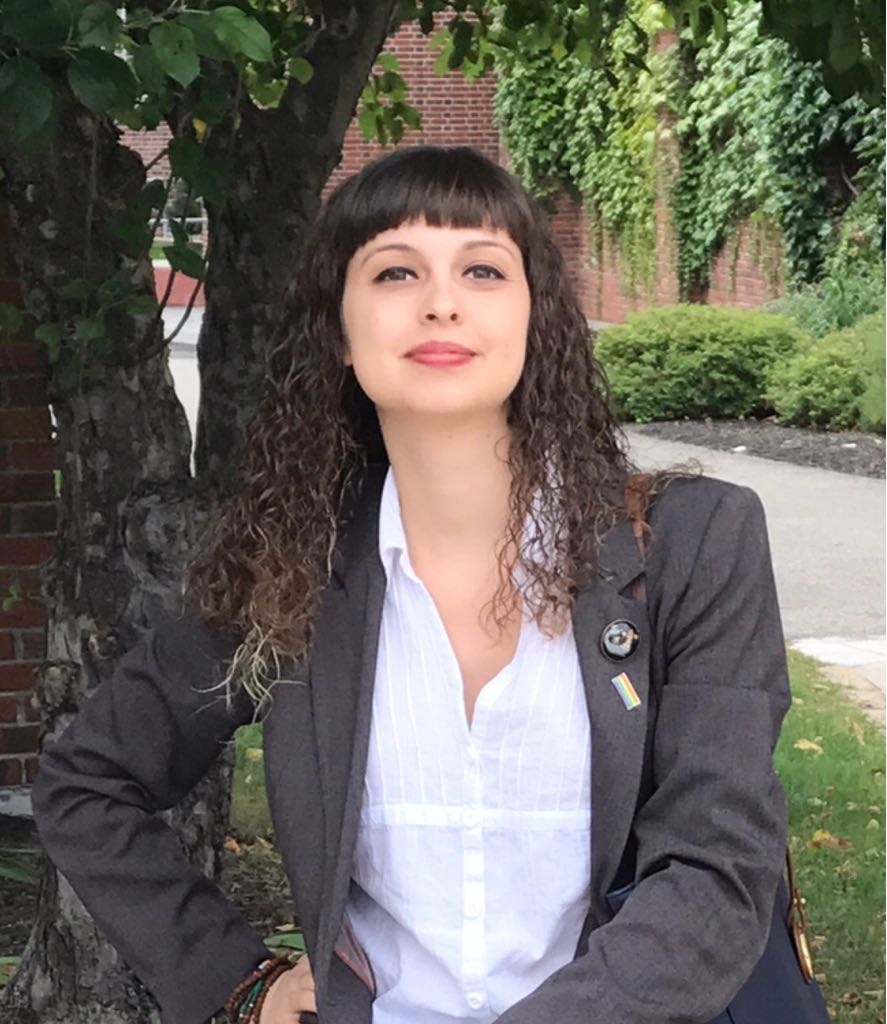‘Refugee Problem Should Be Solved with Local Administrations’

While Turkey's refugee policy continues to be the subject of debate, local governments are trying to strengthen migration governance with their own organizations and international collaborations. We talked about the agreement signed between Istanbul Metropolitan Municipality and United Nations High Commissioner for Refugees and the projects carried out between Resilience of Local Governance (RESLOG) and pilot municipalities, with IMM Deputy Secretary General Şengül Altan Arslan and Prof. Dr. Ayhan Kaya from Istanbul Bilgi University.
‘We Aim for Sustainable Migration Governance with the UNHCR Agreement’
Istanbul Metropolitan Municipality recently signed an agreement of understanding with the United Nations High Commissioner for Refugees (UNHCR), aiming to cooperate with persons under temporary protection, international protection applicants and status holders, and refugees. Şengül Altan Arslan, Deputy Secretary-General of IMM, states that the purpose of the agreement is to ‘strengthen cooperation in the provision of protection and service to persons under temporary protection in Turkey, international protection applicants and status holders, and refugees.’ According to the information provided by Arslan, in 2021 within the scope of the agreement it is planned to provide technical support to the IMM Migration Unit, to support IMM in the training, activity and content creation studies to be carried out on social cohesion, and to provide basic supplies to IMM to be delivered to vulnerable people and local people in Istanbul.
Arslan said, ‘With the activities to be carried out within the scope of this cooperation, it is aimed to strengthen the institutional capacity of IMM in response to refugees and to support a sustainable migration governance. This collaboration supports the global agenda and instruments, including the New Urban Agenda, the Global Compact on Refugees, the Global Compact on Migrants and the Sustainable Development Goals. Policies regarding refugees, fugitives and immigrants are determined by the central government. Therefore, the signed agreement of understanding has more to do with the attempts to make Istanbul a “peaceful city” for all of us, or the continuation of the efforts started, rather than having an impact on existing policies.’
‘İstanbul Hosts the World’s Largest Refugee Population’
Arslan underlined that İstanbul is the city that hosts the largest refugee population in the world and gives information about the migration governance of the İstanbul Metropolitan Municipality: ‘The basis of our work towards immigrants is that İstanbul is a just city of human rights. We believe in the right of everyone with whom we live together in the city, especially vulnerable groups, to benefit from city services.’
Emphasizing that municipalities are the first point of contact for people in finding solutions to problems in city life, Arslan said ‘For this reason, municipalities, as the local actors who are most familiar with local needs, have started to take an active part in migration governance and to include the issue of migration in their strategic planning in recent years’. According to Arslan the definition of targets and indicators in the field of social cohesion for municipalities in the Adaptation Strategy Document and National Action Plan of the General Directorate of Migration Management is a sign that the role of municipalities in this regard will gain importance and that preparations are needed. Arslan said ‘As IMM, we take care to ensure that local people benefit equally in all our work with immigrants. Municipalities also play a major role in solving the problems experienced in the public sphere in daily life. With this approach, we are working in line with our policy on migration, which we see as one of the most important issues of the city, within the scope of “people-oriented” and “inclusiveness”, which are the core values of our Strategic Plan for 2020-2024, and by serving the purpose of “Sharing Istanbul”.’
‘We Made a 2020-2024 Migration and Integration Action Plan’
Arslan mentioned that immediately after the 2019 local elections, they carried out a research process in which many stakeholders came together to determine the needs in the field and the role of IMM in migration governance: ‘Simultaneously, we conducted the İstanbul Migration Survey to understand the socio-economic status of immigrants living in Istanbul and the barriers to social cohesion between local people and immigrants. At the end of our search process, we held a workshop with the participation of all stakeholders we interviewed from civil society, academia, district municipalities, immigrant self-organizations and public institutions. As a result of this workshop, we drafted up “2020-2024 Migration and Integration Action Plan”, in which we set the strategic goals of IMM in migration governance.’
Stating that they have identified four basic priorities in the action plan, Arslan listed them as follows: ‘(1) Ensuring coordination between municipal services in the city and district municipalities, (2) Increasing the service capacity of municipalities, (3) Ensuring qualified and analytical data flow in the field of migration (4) Promoting social cohesion.’
Arslan mentioned that they have appointed a Migration Unit within the Social Services Department in order to carry out studies for these purposes, and that this unit works in close cooperation with municipal units, public institutions, international institutions, non-governmental and non-governmental institutions. Arslan said that they develop and carry out projects under the titles of 1) Research and Data Management, 2) Policy and Capacity Building, 3) Social Cohesion, 4) Support Services, under the roof of IMM and added ‘The projects are prepared and carried out to implement the Migration Integration Action Plan, which is prepared in accordance with the locality, considering the general policy of IMM and the National Integration Action Plan.’
‘We Organize Inclusive Language Trainings for Inclusive Municipalism’
IMM carried out a field study with the participation of 32 district municipalities between September 2020 and March 2021 in order to see the current situation of district municipalities in terms of migration governance and to determine their needs. Arslan mentioned that within the scope of the research, suggestions have been developed on the services provided by municipalities to immigrants, the problems they encounter in these service areas, what local governments need to provide more inclusive services, and what they can do to improve the inclusiveness and quality of services.
Şengül Altan Arslan, who stated that they see combating discriminatory language and attitudes towards immigrants as an important issue in line to create an inclusive city, said that they organize trainings for field and administrative personnel under the name of ‘Inclusive Language for Inclusive Municipalism’ within the municipality.
‘The Most Basic Barrier to Social Cohesion and Access to Right is Language’
IMM Deputy Secretary General Arslan explained the work they carry out as a municipality for the social cohesion of refugees with local people with the following words: ‘Within the scope of Social Cohesion, we are working to reach individuals who are self-sufficient and contribute positively to the society through the methods we provide to both refugees and local people, such as vocational training, language training, daycare support, protection service, entrepreneurship, cooperatives and employment support.
In addition to the Multilingual Women’s Solidarity Line and Women’s Solidarity House, we are making services for women/children/disabled and elderly people inclusive. We also work for multilingual information and preparatory trainings to make the city inclusive and resilient against disasters such as earthquakes and pandemic. We know it is among our most important responsibilities to create a fair İstanbul, to produce a policy that protects the peace and well-being of everyone, especially the vulnerable groups in the city, in every work we carry out.
Our research has shown that: One of the main obstacles to both social cohesion and access to rights is the language barrier. For this reason, we have established a Translation Call Line that can be used by our personnel who meet immigrants in the field, and then by district municipalities. We received the support of the United Nations High Commissioner for Refugees (UNHCR) in the establishment of this line. Our call line provides service with 3 Arabic, 1 Arabic/Kurdish, 1 French and 1 Persian translators. The pilot implementation period has ended, and preparations continue to be made available to the district municipalities.’
Within the scope of IMM’s Support Services for refugees, basic food and hygiene items were provided with the support of stakeholders to more than 34 thousand social assistance applications from refugees and migrants during the Covid-19 pandemic process. In addition, multilingual information was provided on critical issues such as the HES (Life Fits into Home) code application and ’14 rules in the fight against Covid’.
Finally, IMM Deputy Secretary General Arslan stated that with the ‘Local Equality Action Plan’ launched on March 8 based on gender equality, they take care to include targets and indicators for refugees and migrants on the same inclusive ground.
‘Local Transformation Process on Migration Management Has Begun’
We talked with Prof. Dr. Ayhan Kaya, Faculty Member of Istanbul Bilgi University Department of International Relations and Director of the European Union Institute, about the migration management of local municipalities in general, and what pilot municipalities carry out in partnership with the RESLOG (Resilience of Local Governance) Project.
Kaya began his speech by giving a detailed description of the RESLOG project: ‘The RESLOG (Resilience of Local Governance) Project was launched simultaneously in Turkey and Lebanon between 2018-2021, with the initiative of the Swedish Association of Local Authorities and Regions (SKL) and the financing of the Swedish government. The RESLOG project was carried out by the Union of Municipalities of Turkey, the Union of Marmara Municipalities and the Çukurova Union of Municipalities, working with the RESLOG Turkey team. In addition to the relevant Municipal Unions, in-depth interviews with the officials in the departments of migration, social services and municipal services of some metropolitan municipalities and district municipalities that receive heavy migration, problem and needs analysis studies carried out with pilot municipalities within the scope of the project, and it was developed based on interviews with experts who is professional and engaged in academic activities.’
‘RESLOG Aims to Improve Inclusive Planning and Governance’
Explaining the purpose of the RESLOG Turkey project, Kaya said ‘Developing national migration policies to reflect local realities and needs, strengthening inter-municipal learning and support structures through regional associations, and improving inclusive planning and governance at the municipal level.’ Within the scope of the RESLOG project, 14 books have been published in Turkish and English, dealing with migration and local government relations at different levels. The books can be accessed here.
Kaya mentioned that local governments could not develop their immigration policies sufficiently due to the lack of resources and the thought that migration is temporary, but progress has been made in this regard since 2015. ‘Especially since 2015, local governments have started to deal more closely with immigration and immigration issues in accordance with Article 13 of the Municipality Law No. 5393, which underlines the law of “citizenship”. In addition, the fact that local governments and cities are given special value within the Sustainable Development Goals prepared and disseminated by the United Nations since 2015 may also have a role in this.’
‘Problems Are Experienced in Local, It Should Be Solved in Local’
Prof. Kaya commented on the agreement signed between Istanbul Metropolitan Municipality and UNHCR, saying ‘The process called local transformation has started in Turkey’. Kaya said, ‘The agreement signed between Istanbul Metropolitan Municipality and UNHCR, which aims to cooperate with persons under temporary protection, international protection applicants and status holders, and refugees, shows us that local transformation in Turkey as well as in many other Western countries (A process that we can call local turn) has started to take place. In other words, local governments have begun to show their will to have a greater say in matters such as migration management and integration of immigrants, which fall under the responsibility of the central state. Although, as in the case of Bolu, the local initiatives in question have the possibility of showing some negative features from time to time, I believe that it is a great development that local governments are more participatory and willing in processes such as migration management and integration of immigrants. Problems are experienced in local, so solutions should be sought in local.’
‘Citizenship Law Makes Municipalities Responsible for Everyone Within Their Boundaries’
Underlining that the importance of the local in the governance processes of mass migration processes is emphasized by many experts and officials, Kaya said ‘In terms of social cohesion, integration and adaptation opportunities, the living conditions of the person, the design of the area where they live and both public and private infrastructure elements are of great importance in terms of adaptation processes.’ Kaya mentioned that every individual, whether immigrant or local, is the responsibility of the municipality where they live with these words: ‘According to Article 13 of the “Municipalities Law”, titled “Citizen Law”, “everyone is defined as a citizen of the town in which they reside” and it has been noted that “citizens have the right to participate in municipal decisions and services, to be informed about municipal activities and to benefit from the assistance of the municipal administration”’.
‘Municipalities Should Be Given Budgets Proportional to The Immigrant Population’
At this point, Prof Dr Kaya touched upon the importance of municipalities having budget opportunities commensurate with their duties towards immigrants and underlined the importance of implementing legal regulations for this: ‘Since the treasury allowances provided to municipalities and public institutions that distribute aid are determined according to the number of citizens living in those provinces, regardless of the immigrant population, resources may be insufficient especially in districts and provinces where immigrants living under temporary protection live in recent years. In addition, the visibility of aid to Syrians living under temporary protection, especially in the neighborhoods where poverty threatens the local people at the peripheries of urban areas, makes the local people jealous and therefore strengthens their hostile approach towards Syrians. Such tensions that can arise between indigenous and immigrant communities can undoubtedly be seen as one of the major barriers to cohesion.’
‘Having Migrants Living Happy Lives is Beneficial to Societ
Finally, Prof Dr Kaya mentioned that a significant part of the immigrants will continue to live with us, and at this point, their welfare and happiness will be good for us as a society. Kays said, ‘Our municipalities should be expected to implement small projects that bring hope to the fore, emphasize the principle of Citizenship, enable the development of neighborly relations, enable intercultural interaction, bring citizens and immigrants and refugees who have not yet obtained citizenship, on common platforms, and bring them together. Gastronomy Projects as in the examples of Hatay and Gaziantep, “There is Life in the Kitchen” project as in the example of Şişli Municipality, the “Snow Sparrow” Project, which ensures the participation of female immigrants in public life as in the example of Zeytinburnu, and the child-friendly city project developed by the Reyhanlı Municipality are just some of the small projects that come to mind. The only thing to be done is for the municipalities to be open to these and similar project ideas, and spaces should be created where both local citizens, immigrants and refugees can share their ideas and create synergies. City Councils are perhaps the most suitable grounds for such participation.’



Bizi Takip Edin